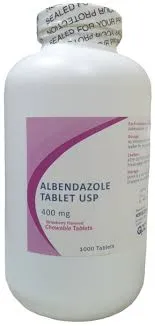- Afrikaans
- Albanian
- Amharic
- Arabic
- Armenian
- Azerbaijani
- Basque
- Belarusian
- Bengali
- Bosnian
- Bulgarian
- Catalan
- Cebuano
- Corsican
- Croatian
- Czech
- Danish
- Dutch
- English
- Esperanto
- Estonian
- Finnish
- French
- Frisian
- Galician
- Georgian
- German
- Greek
- Gujarati
- Haitian Creole
- hausa
- hawaiian
- Hebrew
- Hindi
- Miao
- Hungarian
- Icelandic
- igbo
- Indonesian
- irish
- Italian
- Japanese
- Javanese
- Kannada
- kazakh
- Khmer
- Rwandese
- Korean
- Kurdish
- Kyrgyz
- Lao
- Latin
- Latvian
- Lithuanian
- Luxembourgish
- Macedonian
- Malgashi
- Malay
- Malayalam
- Maltese
- Maori
- Marathi
- Mongolian
- Myanmar
- Nepali
- Norwegian
- Norwegian
- Occitan
- Pashto
- Persian
- Polish
- Portuguese
- Punjabi
- Romanian
- Russian
- Samoan
- Scottish Gaelic
- Serbian
- Sesotho
- Shona
- Sindhi
- Sinhala
- Slovak
- Slovenian
- Somali
- Spanish
- Sundanese
- Swahili
- Swedish
- Tagalog
- Tajik
- Tamil
- Tatar
- Telugu
- Thai
- Turkish
- Turkmen
- Ukrainian
- Urdu
- Uighur
- Uzbek
- Vietnamese
- Welsh
- Bantu
- Yiddish
- Yoruba
- Zulu
10 月 . 01, 2024 02:18 Back to list
Is ivermectin injection safe for pregnant cattle health and wellbeing considerations
Is Ivermectin Injection Safe for Pregnant Cows?
Ivermectin is a widely used antiparasitic agent known for its effectiveness against a variety of internal and external parasites in livestock. However, when it comes to its use in pregnant cows, there are critical considerations that need to be addressed to ensure the health of both the cow and her unborn calf.
Ivermectin is part of the avermectin class of drugs, derived from a bacterium called *Streptomyces avermitilis*. It acts by binding to certain chloride channels in the parasites, leading to paralysis and death. This mechanism has made it a go-to solution for managing infestations of worms, lice, and mites in cattle. However, the use of ivermectin during pregnancy warrants caution due to potential risks associated with drug administration at this sensitive time.
Safety Concerns
Research on the safety of ivermectin in pregnant cows is somewhat limited, but existing studies and veterinary practices provide some insights. General consensus among veterinarians suggests that while ivermectin is not known to have teratogenic (causing malformation) effects, its use should still be carefully considered based on the stage of pregnancy.
In early gestation, particularly during the first trimester, the fetus is especially vulnerable to harmful substances. Some practitioners recommend avoiding the use of ivermectin during this period unless absolutely necessary, as the potential for adverse effects is higher. However, during the later stages of pregnancy, it appears that ivermectin can be administered more safely, particularly if the benefits outweigh the risks, such as in cases of severe parasitic infections that could threaten the health of the cow.
is ivermectin injection safe for pregnant cows

Proper Dosage and Administration
If ivermectin is deemed necessary for a pregnant cow, adherence to proper dosage guidelines is crucial. The standard dosage for ivermectin is typically 200 micrograms per kilogram of body weight, administered either as an injection or orally. Overdosing can lead to more severe adverse reactions, hence why consulting with a veterinarian prior to administration is vital. The veterinarian may also recommend additional supportive care or monitor the cow’s condition post-treatment to ensure there are no adverse effects.
Alternative Treatments
In instances where concerns regarding ivermectin arise, there are alternative antiparasitic treatments available that might pose fewer risks during pregnancy. Compounds such as fenbendazole have been suggested as safer options due to their established safety profiles in pregnant livestock. Farmers should discuss with their veterinarians to identify the most suitable treatments tailored to their herd's specific needs.
Conclusion
In conclusion, while ivermectin injection can be used in pregnant cows under certain circumstances, it is essential to weigh the risks against the benefits, particularly during early gestation. Consultation with a veterinarian is crucial to determine the appropriateness of ivermectin treatment in pregnant cows and to explore alternative options if necessary. Safeguarding the health of both the pregnant cow and her fetus should always be the paramount goal when considering any medication during gestation. With careful management and proper veterinary guidance, farmers can effectively control parasite populations while minimizing risks to their livestock.
-
The Power of Radix Isatidis Extract for Your Health and Wellness
NewsOct.29,2024
-
Neomycin Sulfate Soluble Powder: A Versatile Solution for Pet Health
NewsOct.29,2024
-
Lincomycin Hydrochloride Soluble Powder – The Essential Solution
NewsOct.29,2024
-
Garamycin Gentamicin Sulfate for Effective Infection Control
NewsOct.29,2024
-
Doxycycline Hyclate Soluble Powder: Your Antibiotic Needs
NewsOct.29,2024
-
Tilmicosin Premix: The Ultimate Solution for Poultry Health
NewsOct.29,2024













